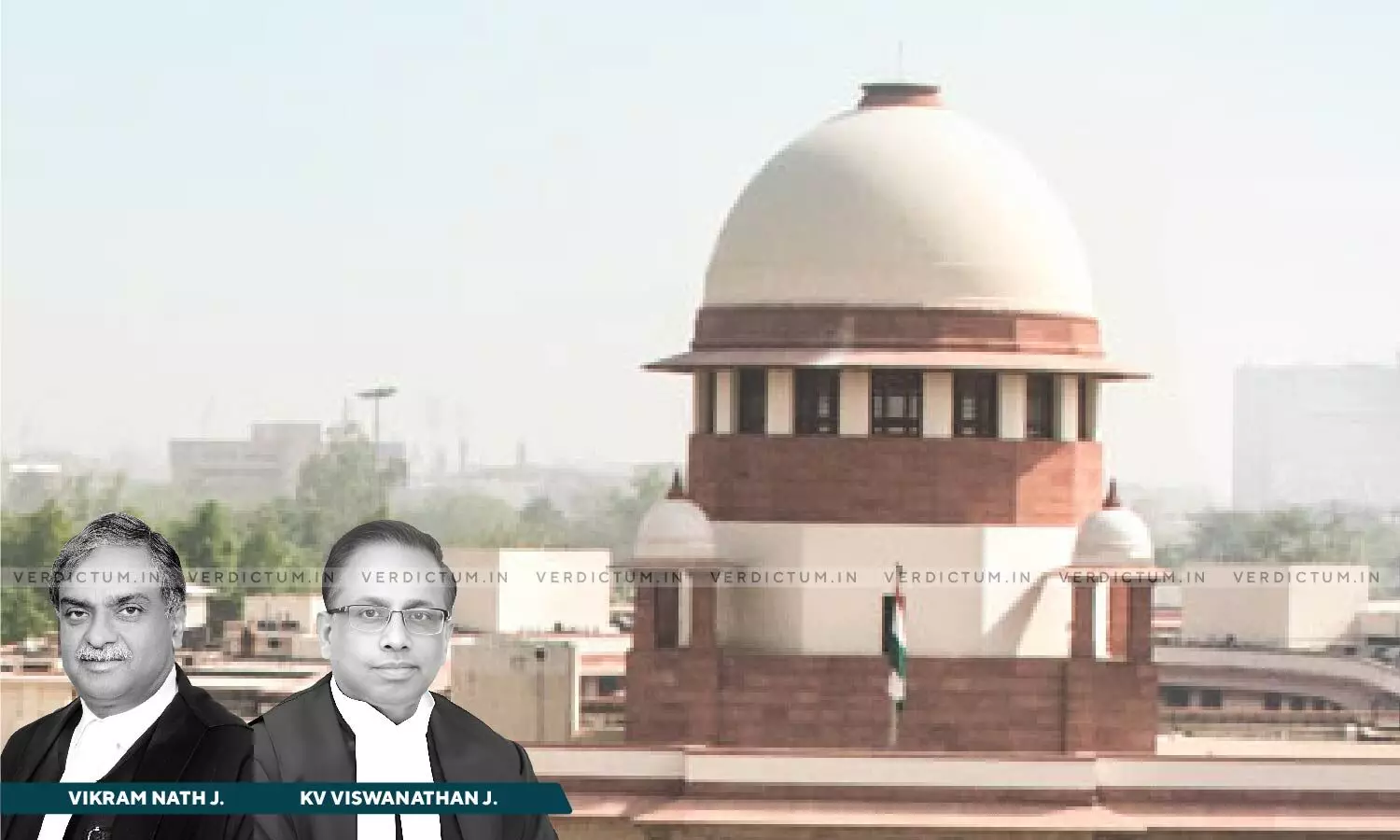
Findings In Proceedings Under Income Tax Act Cannot Be A Ground For Discharge Of Accused In Corruption Case: SC
 |
|The Supreme Court observed that findings in a proceedings under Income Tax Act cannot be a ground for discharge of accused in a corruption case.
The court reiterated that while income tax returns and orders may be admissible as evidence, they do not conclusively prove or disprove a charge by default.
In that context, the Bench of Justice Vikram Nath and Justice KV Viswanathan observed that, "while income tax returns/orders may be admissible as evidence, the probative value of the same would depend on the nature of the information furnished and findings recorded in the order, and would not ipso facto either conclusively prove or disprove a charge."
It further added: "In the present case, the charges were framed under the Prevention of Corruption Act, while the appellants seek to rely upon findings recorded by authorities under the Income Tax Act. The scope of adjudication in both the proceedings are markedly different and therefore the findings in the latter cannot be a ground for discharge of the Accused Persons in the former. The proceedings under the Income Tax Act and its evidentiary value remains a matter of trial and they cannot be considered as conclusive proof for discharge of an accused person."
Senior Counsel Mukul Rohatgi and Senior Counsel Siddharth Agarwal appeared for the appellants.
The appeals challenged the judgment of the High Court of Delhi, which upheld the framing of charges against Puneet Sabharwal and R.C. Sabharwal under the Prevention of Corruption Act for owning disproportionate assets.
The charges stemmed from allegations that R.C. Sabharwal, an Additional Chief Architect at NDMC, amassed assets disproportionate to his income, with his son, Puneet Sabharwal, allegedly aiding him. The High Court upheld the charges, stating that suspicion of wrongdoing warranted a trial.
Puneet Sabharwal argued that being a minor for a significant part of the investigation period should have been a reason to dismiss the charges against him. He also contested the allegations of his involvement in the M/s Morni Devi Brij Lal Trust and its purported benami properties. Additionally, he questioned how he could conspire with his father during the years when he was a minor.
R.C. Sabharwal relied heavily on an Income Tax Appellate Tribunal order, asserting that he was not the owner of entities whose properties were added to his income. However, the prosecution argued that framing charges relies on available evidence and does not require a full trial, and that the Income Tax Tribunal's findings do not automatically nullify criminal charges. The prosecution urged caution in dismissing proceedings prematurely.
The Supreme Court observed that, "the probative value of the Orders of the Income Tax Authorities, including the Order of the Income Tax Appellate Tribunal and the subsequent Assessment Orders, are not conclusive proof which can be relied upon for discharge of the accused persons. These orders, their findings, and their probative value, are a matter for a full-fledged trial. In view of the same, the High Court, in the present case, has rightly not discharged the appellants based on the Orders of the Income Tax Authorities."
Subsequently, it was observed that the appellants had not made out a case to say that the charge was groundless. In light of the same, the appeals were dismissed.
Appearances:
Appellant: Senior Counsels Mukul Rohatgi, Siddharth Agarwal
Cause Title: Puneet Sabharwal vs CBI
Click here to read/download the Judgment